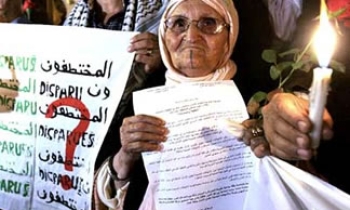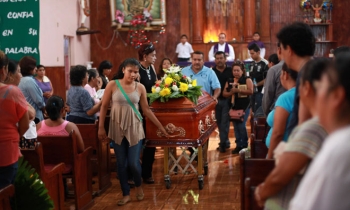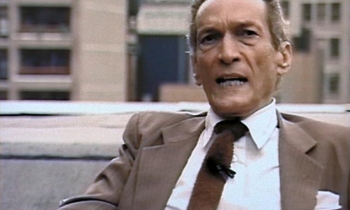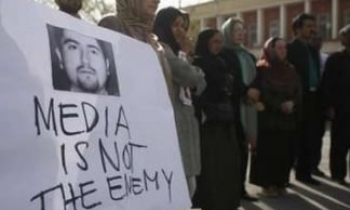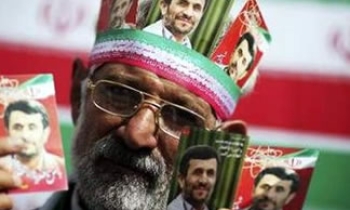The decapitated body of a Sudanese newspaper editor accused of insulting Islam was recovered Wednesday, a day after he was kidnapped by masked gunmen.

The gunmen bundled Mohammed Taha Mohammed Ahmed, editor-in-chief of the private Al-Wifaq, into a car outside his home in east Khartoum late Tuesday. Police found his severed head next to his body Wednesday in the south of the capital. His hands and feet were bound, according to the Committee to Protect Journalists (CPJ).
A sea of white-clothed mourners laid Taha to rest on Thursday. Amid cries of "There is no God but God" and "God is Greatest", thousands attended his funeral, including ministers who sat alongside journalists and Taha's family.
Hundreds of riot police lined the streets of central Khartoum and near the cemetery in a show of force by the interior minister whose resignation was demanded by hundreds of mourners at the morgue on Wednesday after Taha's body was found.
Mohammed Taha had previously angered Islamists by publishing an article about the prophet Mohammed. He had also written critically about the political opposition and armed groups in Sudan's western Darfur region, according to press reports. No group has claimed responsibility for the killing, Reuters reported.
Taha, 50, was an Islamist and former member of the National Islamic Front. In May last year, he was detained for several days, his paper was closed for three months, and he was fined 8 million Sudanese pounds (US$3,200) after he offended the country's powerful Islamists by republishing an article from the Internet that questioned the ancestry of the prophet. Demonstrators outside the courthouse demanded he be sentenced to death for blasphemy.

Sudan is religiously conservative and penalises blasphemy and insulting Islam with the death penalty. Mainly-Muslim Sudan is under sharia Islamic law in the north, but while it has suffered multiple regional civil wars, it has not seen the extremist violence that has surfaced elsewhere in the Middle East.
Six months ago, unidentified assailants set fire to the offices of Al-Wifaq, badly damaging the building. The perpetrators were never identified, a CPJ source said. In the 1990s, an attempt was made on Taha's life after he wrote an article about Islamist leader Hassan al-Turabi which offended many.
"We condemn the brutal murder of Mohammed Taha Mohammed Ahmed," CPJ Executive Director Joel Simon said. "We call on the Sudanese authorities to find those responsible for the heinous act and bring them to justice."
"We express our solidarity with our colleagues in Khartoum, for whom this cowardly murder is a harsh ordeal. The reforms introduced to restore peace and justice to Sudan will be put at risk if nothing is done to punish this crime," said Reporters sans Frontières (RSF). "Sudanese authorities must do their utmost to see that light is shed on this tragedy, so that both the perpetrators and those who instigated it are brought to trial."
The Sudan Human Rights Organization (SHRO) Cairo office condemned the murder. "It uncovers the savagery, ruthlessness, and chaotic violence, as well as the non-democratic confrontational climates that the NIF/Congress-led government continues to develop for political purposes in Darfur, Eastern Sudan, and the Manasir area, in addition to the ongoing suppression of the peaceful demonstrations of the opposition in Khartoum."
No one has claimed responsibility for his death and Sudanese are at a loss as to who committed the crime, which many call a first in the history of the nation. Sudanese police said they had made some arrests but were no closer to solving the crime. All papers covered their front pages with pictures and stories of the brutal killing.
Arabic language satellite news channel Al-Jazeera said Mohammed Taha had fought many battles with the government and the opposition parties over his writings and made many political enemies.

Over the past month, freedom of the press in Sudan has been heavily curtailed. On August 30, Khartoum police beat Ibrahim Muhammad, a cameraman for Al-Jazeera, and seized his camera during a banned demonstration against rise in fuel and sugar prices, Reuters reported. On August 26, a court in Al-Fashir charged Paul Salopek, a Pulitzer Prize-winning reporter for the Chicago Tribune, along with his Chadian interpreter and driver, with espionage, illegally disseminating information, and writing "false news."
Tomo Kriznar, a Slovenian freelance photographer was detained in Darfur on July 19 and sentenced on August 14 to two years in prison on, what CPJ considers, a spurious charge of espionage. Sudan President Omar al-Beshir pardoned Kriznar on September 2, official news agency Suna reported. Slovenian President Janez Drnovsek had written to his Sudanese counterpart seeking a pardon the previous week.
Before leaving Sudan on Monday last, Kriznar said he would not quit the country without his photos. He told the Slovene TV, "There are 5,000 digital photos in my computer and many hours of video footage from the places where there were no reporters, no foreigners. I do not want to lose that." He hoped that he would be able to get them back and said that his arrest in Sudan may have something to do with the fact "that some people were afraid I was investigating mass graves too much."
Taha's beheading, however, might mark the start of a gruesome new trend, experts said on Thursday. "Something must be done before the abduction phenomenon develops into a practice," said state-owned Sudan Vision, which printed in black and white in respect for Taha's funeral due to take place on Thursday, Reuters reported.

The semi-independent al-Watan paper warned this type of bloodshed rarely ended with just one crime. "When you open this evil door to hell and knives and bullets take the place of the pen, this means we are.... on the path to chaos." Journalist Sabah Mohamed al-Hassan told Reuters, "The circumstances are very murky. This is the first time we see something like this in the history of this country."
Sudan hosted Al-Qaeda leader Osama bin-Laden in the 1990s. Bin-Laden and his deputy Ayman al-Zawahiri have warned they would come to Sudan to fight if UN forces enter Darfur. A week ago, the UN Security Council passed a resolution on the deployment of more than 20,000 troops and police by year-end. Khartoum has likened the plan to a Western invasion that would attract jihadi militants and create an Iraq-like quagmire.

